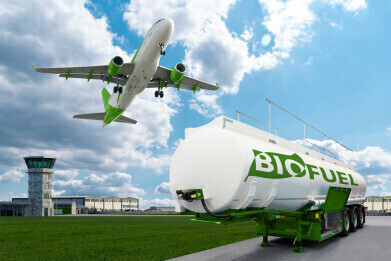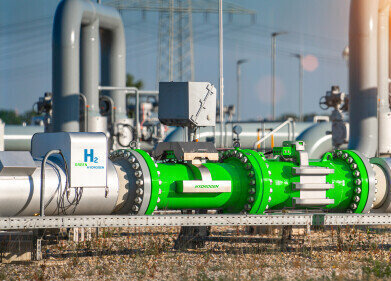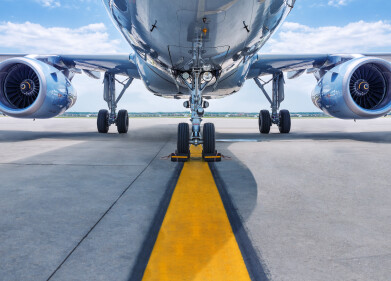Sustainable aviation fuel (SAF)
Largest Fischer-Tropsch plant for SAF being built in US
Apr 30 2024
The push towards sustainable aviation fuel (SAF) has taken a significant leap forward with the construction of the largest Fischer-Tropsch (FT) synthesis plant for SAF in the United States. This monumental project, undertaken by DG Fuels in St. James Parish, Louisiana, signifies a major advancement in the use of renewable resources for fuel production. When operational, the facility is expected to churn out 600,000 metric tons of SAF annually, setting a new standard for non-HEFA route production of synthetic fuels.
DG Fuels, recognized for its innovative approach to renewable energy, has collaborated with Johnson Matthey and bp to implement the FT CANS™ technology, a system co-developed by these entities. This technology forms the core of the new plant's operations, where it converts synthesis gas derived from waste biomass, specifically sugar cane residue, into synthetic crude. This crude is then processed into SAF, which can be blended up to 50% with conventional jet fuel, meeting current international SAF standards.
The projected output of the Louisiana facility would be sufficient to supply over 30,000 transatlantic flights each year, thereby covering more than 3% of the current annual traffic on routes such as London to New York. This capacity is not only ambitious but reflects a significant stride towards meeting the global demand for cleaner aviation fuel options.
DG Fuels' strategic foresight is evident in their securing of multi-year offtake agreements with major airlines, including Air France-KLM and Delta Air Lines, as well as a partnership with Airbus to promote global SAF accessibility. These collaborations underscore the industry's recognition of SAF's pivotal role in achieving carbon-neutral goals.
Moreover, this initiative is part of a broader plan, with DG Fuels aiming to construct ten additional SAF production plants across the United States. These facilities will replicate the Louisiana model, continuing the partnership with Johnson Matthey and bp as the technology providers.
The project’s scale and its alignment with global sustainability targets highlight the essential role of cooperative efforts between industry players and governmental bodies. The commitment to a sustainable aviation future necessitates innovative technologies and supportive policies to foster a transition to alternative fuel sources. The International Air Transport Association (IATA) has already set a goal for the aviation industry to reach net-zero carbon emissions by 2050, emphasizing the need for a unified approach in reducing environmental impacts.
In addition to the FT CANS™ technology, Johnson Matthey is also developing HyCOgen™, a Reverse Water Gas Shift (RWGS) technology that optimizes the conversion of renewable hydrogen and captured COâ‚‚ into syngas. This technology, when paired with FT synthesis, like in the collaborative FT CANS™ solution, enhances the efficiency of converting COâ‚‚ to synthetic crude oil, thereby supporting the production of sustainable fuels.
As sustainable technologies continue to evolve, Johnson Matthey’s HyCOgen™ presents yet another promising avenue for the production of environmentally friendly fuel alternatives, showcasing the potential for significant advancements in the quest for reduced carbon emissions in various industrial applications.
Digital Edition
PIN 26.1 Feb/Mar 2025
March 2025
Analytical Instrumentation - Elemental Analysis for Quality and Process Control at Refineries, for Lubricants and Wear Metals in Engine Oils - Synthetic Lubricants: New Developments - Scaling...
View all digital editions
Events
Mar 31 2025 Hannover, Germany
Mar 31 2025 Beijing, China
Apr 02 2025 Saigon, Vietnam
Apr 02 2025 Atyrau, Kazakhstan
Apr 08 2025 Birmingham, UK



















